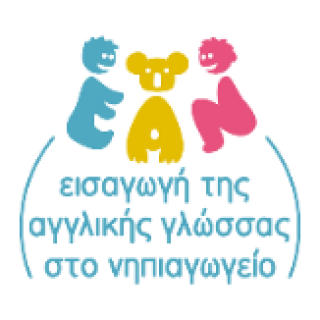Greece: Completion of the Teacher Training Programme for the Introduction of English in Pre-school Education

During school year 2021-22, English was introduced for the first time (after a pilot phase) in preschool education curriculum in the form of playful activities implemented in class by English teachers in collaboration with preschool class teachers. This is an innovative action taking place in the context of the reforms introduced in Greek education system and the priorities of the educational policy aimed at upgrading this system at all levels of education.
With regard to the effective implementation of the new programme, the project “Teacher Training for the Introduction of English in Preschool Education (EAN)”, (MIS 5093563), was launched in the context of the Operational Programme “Human Resources Development, Education and Lifelong Learning 2014-2020” (Partnership Agreement for the Development Framework 2014-2020) funded by the European Structural and Investment Funds (ESIF) of the European Union. The Aristotle University of Thessaloniki (AUTH) was responsible for the design, organisation and coordination of the Project in collaboration with the National and Kapodistrian University of Athens (NKUA) and the Institute of Educational Policy (IEP).
The EAN project aimed to support the introduction of the English language in preschool education (kindergarten) through teacher training and the provision of specially designed educational scenarios and creative activities for preschool children (4-6 years old). The main goals of the EAN Project have been:
- designing and implementing a training scheme for English language teachers, preschool teachers and Education Advisors
- monitoring and supervising the introduction of the English language in kindergartens, and collection of relative evidence from all key stakeholders, and
- developing a bank of educational material including appropriate educational scenarios and activities.
Training included a 24-hour asynchronous programme attended by more than 18.000 EFL and preschool teachers, as well as by approximately 70 EFL and preschool Education Advisors, aiming at helping teachers of both specialties to develop the necessary skills, knowledge, as well as attitudes in order to incorporate activities in English into the preschool curriculum in the best way possible. Moreover, EFL and preschool Education Advisors have received additional synchronous and asynchronous training designed to assist them with their duties of supporting and mentoring teachers.
The EAN Project provided also support via systematic monitoring and supervision of the implementation of English in preschools. Therefore, visiting schools across the country and collecting data via in-class observation has been of paramount importance. Classroom evidence provided the necessary information for the formative assessment of the Project. Moreover, the linguistic, cognitive and socio-emotional learning outcomes of the children have been investigated. These data have shed light into the importance of introducing a foreign language to very young learners, while catering for their holistic development. In the process of monitoring and supervising the EAN Project, investigating stakeholders’ views and perceptions was also crucial, particularly because these predict the practices implemented (OECD, 2009) and highlight the way in which all stakeholders have experienced the first year of implementation. The data collected were taken into consideration for the stages that followed within the EAN Project, ensuring that teachers and parents were provided with the necessary information and guidance.
The EAN Project has created an open-to-all Educational Portal (www.ean.gr) that hosts not only all the educational material, but also useful guidelines for teachers and parents, including information and results regarding the systematic monitoring of the Project, along with information and study material developed for teachers and Education Advisors, digital tools and resources as well as relevant publications.
The educational materials which are developmentally appropriate for preschool children consist of 34 CLIL scenarios, containing 150 activities, divided into five thematic categories which are accompanied by multimodal material, such as more than 15 songs and digital games and more than 185 flashcards/artwork. Additionally, teachers are provided with a bank of materials, such as useful ideas to incorporate into the classroom, through the “EAN treasure chest”, as well as song and story suggestions, digital resources, educational websites and appropriate activities and ideas for games. The educational materials developed are available on the EAN site here.
The methodology adopted in the material is CLIL and the holistic development of children (including developing attitudes and values) is the paramount concern and care in the scenarios and its aims. The educational materials were designed in order to provide context as well as a need for communication in English which, in turn, creates a purpose for the children to learn while developing intercultural awareness. One of the innovations of the EAN Project has been the teaching model adopted, since it has brought teachers of English and preschool teachers together. The close cooperation and planning between the teachers of the two specialties is critical for the successful introduction of English in preschool education, the ultimate aim being to provide a quality experience for children and inspire love of languages.
More information: https://ean.auth.gr/
Source: Eurydice Unit Greece




